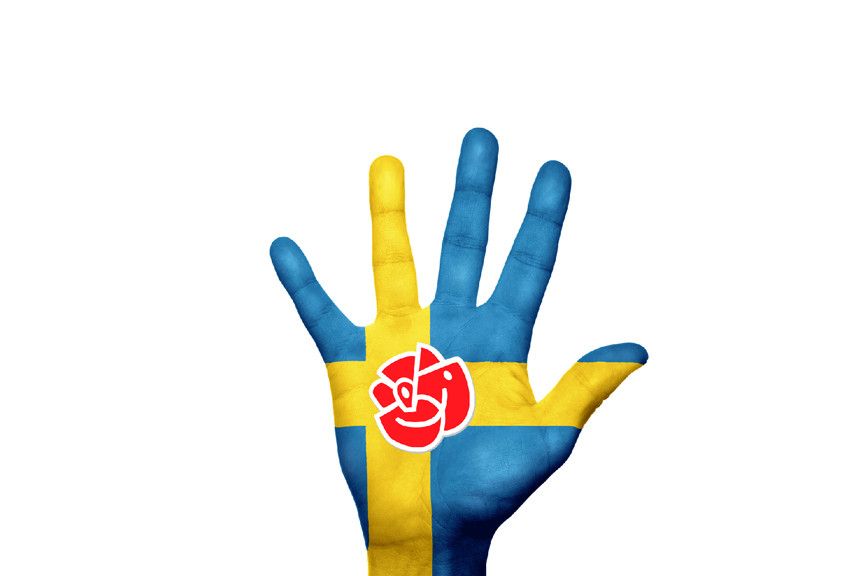In Sweden, Europe’s most LGBT-friendly country, admitting use of cannabis or psychedelics carries a big social stigma
You might imagine progressive drug laws go hand-in-hand with social democracy. It’s not the case in Sweden.

Psymposia is a 501(c)(3) nonprofit research and media organization that offers critical perspectives on drugs, politics, and culture. We rely on contributions from our readers and listeners. Your support is vital to sustaining Psymposia.
Support Psymposia’s independent journalism on Patreon and help us drive the Mystery Machine! We’re a bunch of meddling kids who are unmasking the latest shenanigans on the psychedelics beat.
Friends of various ages, some who have at different times during the last 40 years left the non-heterosexual closet, all agree: coming out of their respective drug closet in contemporary Sweden would have vastly more serious consequences than coming out as homosexual or bisexual.
They often found that some contexts would be more accepting than others, but most agreed that a total coming out to family, friends, colleagues, relatives, and overall society would have dire consequences. One friend even compared coming out of the drug closet today with coming out as gay in rural Sweden during the 1970s. That’s saying a lot in terms of social stigma.
Thinking on my own situation, a 100 percent coming out with my medicinal and recreational use of cannabis and my use of psychedelics and other drugs would have serious ramifications on my family life. I’d also risk losing my credibility as an academic and employee. Coming out as anything other than heterosexual would not even come close—at worst it would raise an eyebrow, but I would still feel empowered in that situation. Coming out of the psychedelic closet would entail me giving up my value and credibility as a human being and citizen.
Based on these conversations—my own and the collective experiences of drug users in Sweden—I find that in the contemporary Swedish context it would, in many cases, be more stigmatizing and have more negative social implications to come out of the closet as a psychedelic user than as a homosexual or bisexual. I will limit this conversation and my argument to homosexuality and bisexual identities as I have more personal experience and knowledge based on conversations with people.
How can this be the case in an otherwise progressive social democracy like Sweden?
Gender equality and sexual rights
Internationally, Sweden is often framed as a social democracy with progressive values related to gender equality and sexual rights. Its inhabitants enjoy the benefits of a highly developed welfare system that provides free education, free health care, and generous government-subsidized parental leave. Domestically, the issues of gender equality and sexual rights are, by many, considered to be a part of Swedish values and culture. I would even say that it is key to the self-image of many Swedish people. Organizations working with sexual and gender rights enjoy substantial influence in Swedish society and have contributed a great deal to the increased liberties and rights of the LGBTQ+ community in the country.
Sweden also has a feminist party, “Feminist Initiative,” that barely missed the four percent parliamentary boundary marker in the last elections. There is a permanently assigned Minister of Gender Equality. Even the far right and conservative parties are forced to include their own versions of gender equality and sexual rights in their nationalist rhetoric.
Gender equality and LGBTQ+ rights are deeply connected and embedded in the creation of the Swedish welfare state and therefore these social justice issues are central to Swedish national and cultural identity. It also means that in case of discrimination based on gender or sexuality, one has legal and normative pillars to lean on for support. This is completely lacking for people who, for different reasons, choose to consume drugs.

Drug policy in Sweden
A less well-known aspect of the Swedish welfare state and national identity is the drug policy. Today Sweden has one of the more conservative, repressive, and scientifically outdated drug policies in Europe.
One cannot talk about psychedelics or cannabis as separate from other drugs. All illegal drugs are bundled into one heap and usually referred to as “Knark.” If you consume any psychoactive substance other than alcohol, nicotine, or caffeine, you run the risk of being labeled as a druggie or a “Knarkare.”
Journalist Magnus Linton has shown in a brilliant way how drug policy since the 1980s is basically an unquestioned ideology. It was built on the idea that use of any drug (except the above-mentioned magic three) as non-applicable with Swedish culture, as foreign, and as a threat to the morals of the Swedish youth. An individual who uses drugs is viewed as a completely undependable, deviant, dysfunctional, lazy person and ultimately a traitor and threat to society and welfare state itself.
There is complete consensus in parliament: The goal is to achieve a drug-free society. In the 2016-2020 drug policy action plan this goal is clearly stated, together with the claim that all drugs (except the magic three) are not a part of Swedish culture.
In Sweden the consumption, possession, distribution, and use of drugs is illegal, including having any traces or markers from drug use in your body. In 1988 and 1993, changes in the law were made to focus efforts and legal consequences on individual drug use and consumption. As a result, young people and more established addicts were the two groups that were increasingly arrested on misdemeanor drug charges.
Individuals that consume cannabis, for example, are considered criminals even after the psychoactive effects have worn off. A drug user in Sweden is basically a walking criminal that can be picked and forced to give up urine or blood for testing. This just enhances the feeling of deviance for many people.
There are several examples of young people from specific socio-economic or racial groups being harassed and profiled by law enforcement. It is almost incomprehensible that the main focus of law enforcement should be to arrest individual users. I have seen the results of these laws. I know people who have been subjected to them and as a result have had their lives destroyed due to the social stigma connected to drug use. Several friends have had to give weekly or monthly urine samples, paid from their own pockets, for up to eight years in order to keep their driver’s licenses. This is despite the fact that many of them were arrested during circumstances with no relation to driving a vehicle.
It is horrifying that there is a political consensus on this blatant example of cultural conservatism across the political spectrum in Sweden. Usually it is the far right that identifies and argues that specific issues or practices, often related to Islam and Muslims, are not a part of Swedish culture or values. They tend to be met with fierce resistance, and intense debates usually follow, but on the issue of drug policy, there is a complete absence of similar debates.
Presently, the proponents of this ideology are expressing strong concerns regarding the liberalization campaigns around the world, more specifically in the U.S. There is political discussion on how to protect the Swedish model, the vision of a drug-free society, from the liberal and foreign view on legalization. I view this rhetoric as a renewal and strengthening of the nationalistic discourses embedded within the drug policy ideology—and a funny contradiction—since Sweden and Swedes are usually quite prone to accepting and incorporating ideas and trends from the U.S.

This issue has a vast number of complexities, expressions, and variations, and I am painting a generalized picture for the purpose of this article and a somewhat simplified and idyllic picture of the progress of gender equality and sexual rights. For example, in highly masculinized criminal environments where drug use is normal, it could be very risky for individuals read as males to come out as homosexual. At the same time, society at large would not find homosexuality problematic, but instead the drug use.
Gender equality and sexual rights on one hand, and drug policies on the other: both have been connected and associated with Swedish nationalism, culture, and values. The former is associated in a positive manner and the latter in a negative manner. Thus, gender equality and sexual rights are considered by many to be a deeply rooted part of Sweden and Swedish culture, meanwhile being a “Knarkare” is not.
We must look at how discrimination of drug users intersects with discrimination of other marginalized groups in different societies and think about similarities and differences of that discrimination. Looking at this from a perspective of culture, identity, and normativity opens up these issues to new possibilities for critique and change.
For me, the restriction on drug use, especially of boundary-dissolving drugs like psychedelics and cannabis, is a restriction of the right to think in the way I want to. These are tools that can help you question the norms of thinking and being, including sexuality and gender. The use of psychedelics has been and continues to be a huge part of my personal and professional development. The stigma connected to the use of these drugs forces me to compartmentalize my life on many levels. Some of the people who I had conversations with for this article have experienced this compartmentalization both in relation to gender, sexuality, and drug use, and they identify similarities in the way it affects their lives. I understand it as a fear of being “found out” as different or deviant.
I completely agree with Graham Hancock saying that it’s not a war on drugs, it’s a war on consciousness where the aim is to keep people in line with what is considered the normative way a good citizen should think. This is particularly evident in the Swedish context where gender, sexuality, and drug use have been connected to the welfare state and the image of the ideal citizen. Sweden has come a long way with accepting critical perspectives on norms regarding sexuality and gender, but still has leaps to go in understanding how drugs like psychedelics and cannabis can contribute to questioning normative aspects of identity, thinking, and reality itself.
Writing this article and signing with my own name is a way for me to at least start opening the door to my own closet, one that I am not ready to completely leave at this time in my life.
Hey! Before you go… Psymposia is a 501(c)(3) non-profit media organization that offers critical perspectives on drugs, politics, and culture. We strive to ask challenging questions, and we’re committed to independent reporting, critical analysis, and holding those who wield power accountable.
Our perspectives are informed by critical analysis of the systemic crises of capitalism that have directly contributed to the unmitigated growth of addiction, depression, suicide, and the unraveling of our social relations. The same economic elite and powerful corporate interests who have profited from causing these problems are now proposing “solutions”—solutions which both line their pockets and mask the necessity of structural change.
In order for us to keep unpacking these issues and informing our audience, we need your continuing support. You can sustain Psymposia by becoming a supporter for as little as $2 a month.





